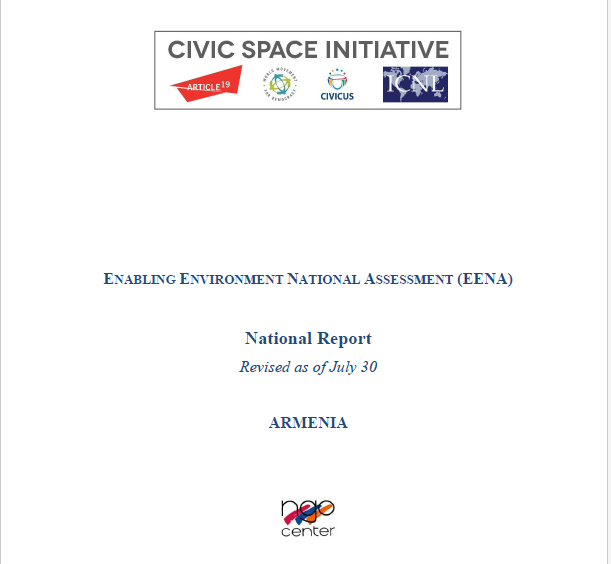
This research has been part of the global Enabling Environment National Assessments (EENAs), which aims at assessing how conducive national conditions are for civil society organisations (CSOs) to exist, function and act. In particular, the research explores how laws and regulations relating to fundamental civic freedoms are implemented in practice, and how they affect civil society. The new pilot EENA methodology specifically focuses on civil society monitoring of Sustainable Development Goals (SDGs) 16.10 on fundamental freedoms and access to information and SDG 17.17 on effective civil society partnerships. The report provides an overview of the state of the enabling environment for CSOs in Armenia based on the results of research conducted between April and June 2018. Research methods used include desktop research, expert interviews, focus group discussions (FGD) and an online survey. As the research commenced, in April-May 2018, dramatic political events took place in Armenia. Often referred to as the ‘velvet revolution’, protests and rallies of unprecedented scope led to the change of the prime minister and the government cabinet. The protests against the Republican Party-controlled government, led by an opposition leader, started in response to the nomination of the president of the country, Serzh Sargsyan, as a prime minister.1 Sargsyan served as the president of Armenia for two five-year consecutive terms, while claiming in 2014 that he did not intend to serve further in a high office.2 In 2015, amendments to the Constitution were adopted, changing the presidential system into a parliamentary system and giving main powers to prime minister.3 Following the election of Sargsyan by the parliament on 17 April 2018, opposition leader Nikol Pashinyan announced the start of a “velvet revolution”. Sargsyan resigned on 23 April amid massive protests spreading through the whole country.4 Protests continued against the ruling Republican Party up to 8 May, when Pashinyan was elected by the parliament as the prime minister